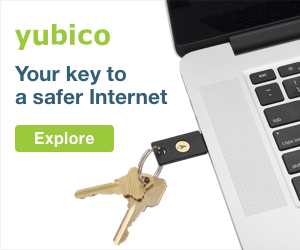Another trip around the sun and here we are again at Data Privacy Day. The purpose of #DataPrivacyDay is to raise awareness and promote online privacy and security best practices. The important thing, of course, is that privacy isn’t something we should think about only one day
What’s your approach to privacy?
Of course, privacy involves the responsibility of corporations we engage with to keep our personal information from prying eyes and unauthorized access, but there’s much more to it than a legal obligation for others to protect our data. First and foremost, privacy is about our own approach to presenting our intimate as well as our
A glance at social media today suggests that just about everyone is actively pursuing a “full disclosure” policy when it comes to revealing their innermost selves to the world. This
At Datum Consulting, we’re fond of saying that “privacy isn’t only for your online life. Privacy is a mindset that also includes your online activities.” Privacy isn’t only about having stricter laws or a setting on an app, it’s about your approach to your personal life. Do you tend to reveal yourself freely, or are you wary before sharing details with
Oversharing on social media doesn’t mix well with privacy
To the extent that we post personal information on social media – which, by definition, is very public – we are no longer in control of who gets to see or watch our private lives. And there’s the rub: once other people get their grubby little eyes on our data or personal information, we can’t control what they do with it. And that can range from just looking at it to embarrassing us by reposting it, or even using against us through a hack or scam. Not to mention uncovering it much later, when an innocent, albeit embarrassing, item can be
The good news is that you don’t have to be a computer geek to enjoy better privacy online. Much of our privacy and being safe on the internet is based simply on not acting in a reckless or irresponsible manner. Just like in the physical world, not being clueless goes a long way to keeping
A few basics to protect your privacy:
- Don’t use public WiFi’s unless you’re using a VPN. Public is public and just by logging into your email account while on public WiFi at the coffee shop or airport, you could be revealing yourself to
a hacker. - Monitor the privacy settings on your social media sites because they do change from time to time. Be sure to check them to ensure that only those people you want to see that special post get to
see it. - In general, online is forever and, unlike the slogan for Las Vegas, what happens online doesn’t stay local. So, before posting, make sure you’re okay with the world seeing
your post. - Turn off location services and GPS on your devices when not using them for maps and other
specific services. - Use a unique password for each of your online accounts. When surveyed, security experts from around the world revealed that in their personal practices they found that a password manager was the best way to handle all their unique, strong passwords. If you aren’t using a password manager,
start today!
And, importantly, be aware! By following privacy and security awareness events like those sponsored by the National Cyber Security Alliance, and their StopThinkConnect campaign, you’ll be in the know about how to

